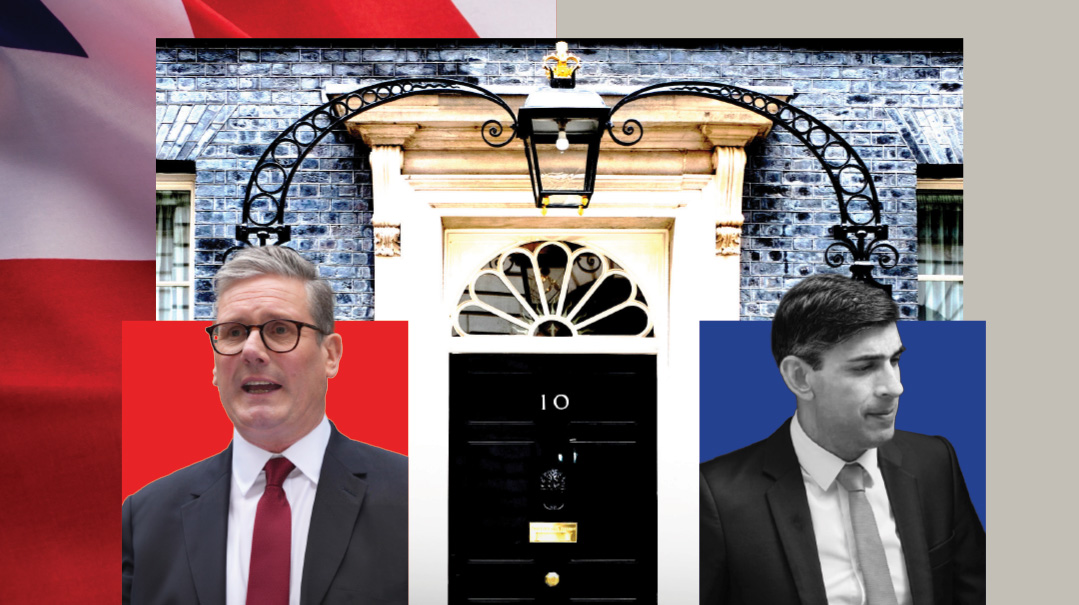Class Warfare
| November 6, 2024If Labour has its way in the UK, Jewish parents will have to pay a hefty tax on chinuch

PHOTO: MX. GRANGER
O
rthodox Jewish schools in the UK face a financial crisis inflicted on them by the newly elected Labour government, whose ministerial ranks are filled with state-educated class warriors. Labour has long committed to changing private school status from educational charity to business. This means a 20 percent tax will be imposed on tuition, and schools will no longer be exempt from paying “business rates” — that is, commercial property taxes.
The change, which was confirmed in the government’s budget last week, will have potentially devastating financial ramifications for chareidi schools, the vast majority of which are private to enable them to maintain a curriculum compatible with Torah hashkafos.
The UK is renowned for its world-class, exclusive private schools, which have disproportionately produced figures of influence in British politics, media, and business. Eton College, for example, has produced countless prime ministers, cabinet ministers, and business leaders; it charges £52,750 per year, and boasts an indoor swimming pool and sports center among its amenities. Winchester College, which former PM Rishi Sunak attended, also charges around £50,000 annually, and is furnished with its own archery range and art gallery.
It’s precisely these elite institutions catering to children of privilege that Labour is targeting, arguing that either affluent parents can cough up an additional 20 percent, or these wealthy schools can absorb the cost of the tax increase without passing it on to parents.
Labour has promised to allocate the revenue it raises (projected to be around £1.6 billion, though estimates vary as to its true total when accounting for pupils who will have to move to the state sector as private education becomes even less affordable) to state education, which they claim will equalize outcomes for the privately and publicly educated.
Interest Groups Object
Caught in this tax trap are Orthodox Jewish schools, the vast majority of which are private (65 out of 74). These mosdos struggle for every penny and are a far cry from the stereotypical private school. Their weekly fees average £75 to £100 per pupil, while it costs the state £147 per week per pupil. Motty Pinter of Chinuch UK, which advocates for chareidi chinuch in the UK, told Mishpacha that they’ve argued that schools charging rates below the state’s per-pupil cost should be exempt from the tax, to no avail.
They haven’t been the only ones begging for a reprieve. Military and diplomatic families, who send their children to private boarding schools to avoid having to change schools every time they’re posted to a new location, lobbied intensively for an exemption, which they did not receive. The government has promised to increase their allowances to account for the increase, though parents will still have to pay an extra ten percent.
Independent schools in rural areas where there’s no accessible state provision are also outraged, and the Independent Schools Council, half of whose membership include small private schools in remote regions, announced its intention to sue the government over the change.
Still, there’s no doubt that the single most affected demographic is the Orthodox Jewish community, where schools compatible with religious belief is nonnegotiable, however difficult the circumstances. Only seven percent of non-chareidi Jewish pupils attend private school (around the same proportion as the general population), compared to 81 percent of chareidi pupils (the remaining 19 percent comprising of chareidi schools in the state sector). The majority of Christians and Muslims send their children to state schools (though many of the latter complain about the liberal curriculum).
Private schools warn these changes will disadvantage bright pupils who might otherwise have been able to access private education, either through their parents’ financial sacrifices or with scholarships that private schools will no longer be able to offer.
Multiple Avenues Exhausted
Chinuch UK made well-sourced and eloquent representations to Labour, before and after the election, arguing that chareidi schools are in a uniquely disadvantageous financial position, and such changes would have a profoundly negative impact on their finances and ability to service their communities.
MPs in areas with significant Jewish populations also lobbied the government, but they were knocking on a sealed door. The policy polls well with the British public, who believe the majority of privately educated children are from wealthy families. However, although negotiations have failed, Chinuch UK is actively pursuing the option of a legal challenge, whose proceedings could delay the date from which these new taxes have to be paid.
Dr. David Landau, chairman of Chinuch UK, doesn’t see the tax on tuition as the primary problem. “Many chareidi schools receive much of their income from voluntary contributions, which won’t be taxed, rather than from formal fees. In addition, the tax will be offset by some of the operating costs, where the purchase taxes can be claimed back by the schools. It’s the ‘business rates’ that are the big problem.”
An askan from a community outside London concurs. “They’re calculated by property space and local real estate values, so that would mean a bill in the hundreds of thousands [of pounds] for some schools, which have large buildings in areas with high property prices.”
Business rates, known elsewhere as commercial property taxes, are paid to local councils and are enforced locally. Is there any hope for well-connected communities to negotiate a more favorable settlement? Dr. Landau is not optimistic.
“It’s an ongoing discussion with local authorities, but it’s difficult to imagine [the councils] will be able to afford a discretionary rebate,” he says. “Maybe in certain places, there are sufficiently good relations to be able to help, but I can’t see it having a significant impact for many schools across the country. Even a goodwill gesture won’t make up for the hole the business rates will blow in schools’ budgets.”
Can chareidi schools become state schools, thus avoiding the new charges? Pinter says that door closed a few years ago. Recent curriculum changes mean that any school now wishing to become publicly funded must sign up to a curriculum incompatible with chareidi values. (These curriculum changes will only affect new state schools; chareidi schools in the state sector before the curriculum changes came into effect are still protected from these changes.)
Unless and until the curriculum becomes more chareidi-friendly, chareidi schools remain in the private sector, subject to the whims of progressive governments wishing to socialize education for the masses.
(Originally featured in Mishpacha, Issue 1035)
Oops! We could not locate your form.







